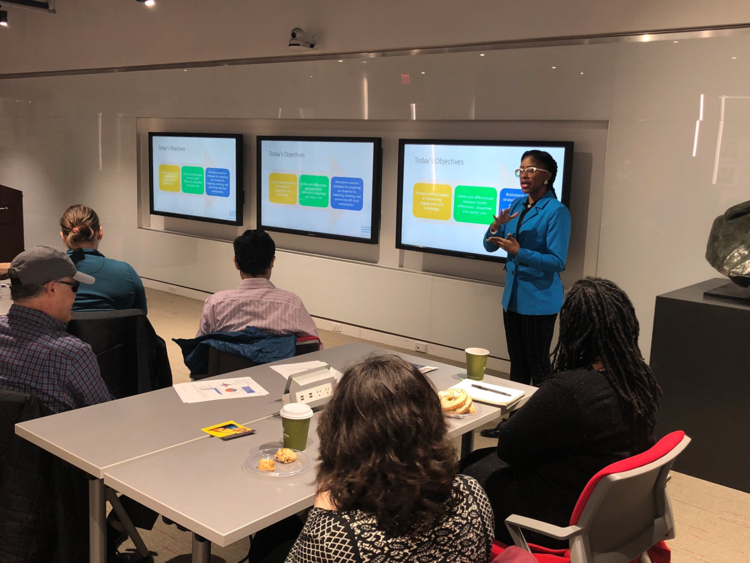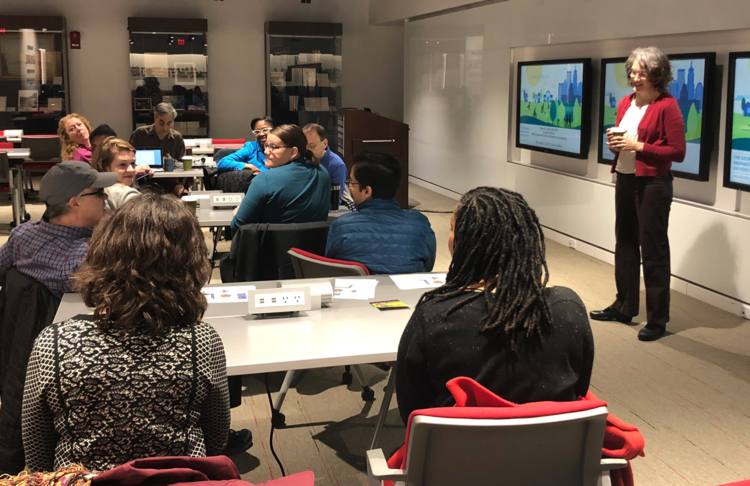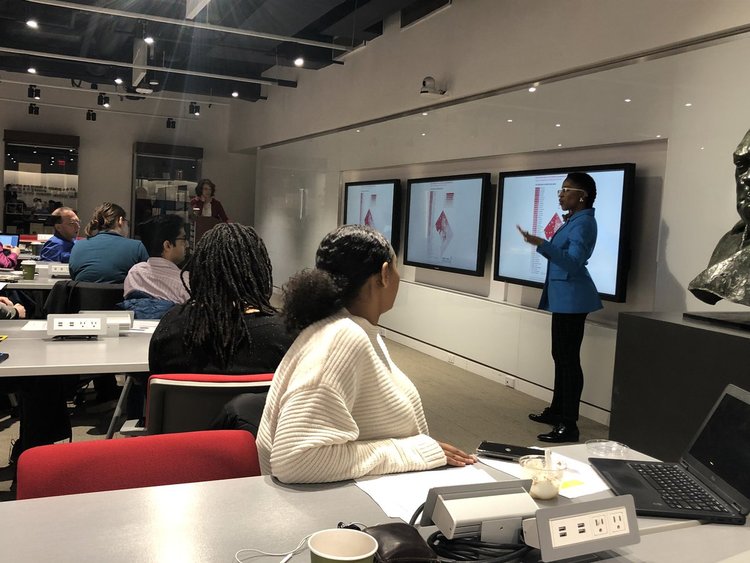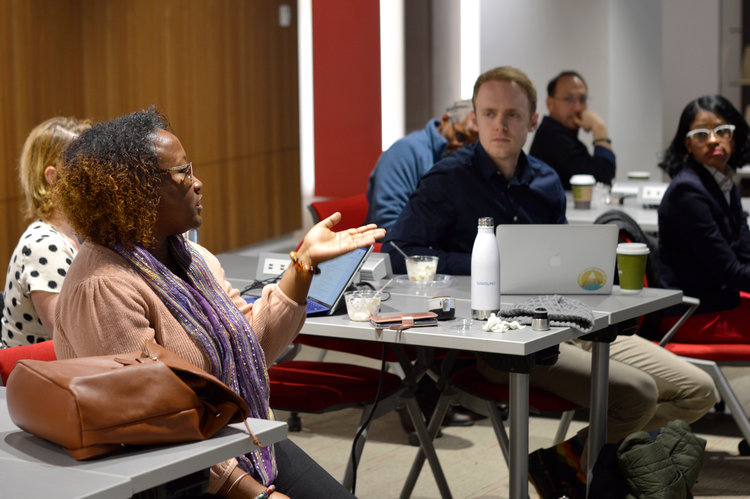
The Black History Month Nashman Breakfast Conversation on Community Engaged Scholarship was hosted this week by the Black Lives Matter Faculty Learning Community (FLC).
Some BLM FLC goals that faculty kept in mind during discussions were:
- Going against socialization
- Preparing students to live with tension
- Cultural mindfulness, humility, and competence
If you missed the presentation, or want a recap, the PowerPoint from the presentation can be found here and video of the presentation can be found here.
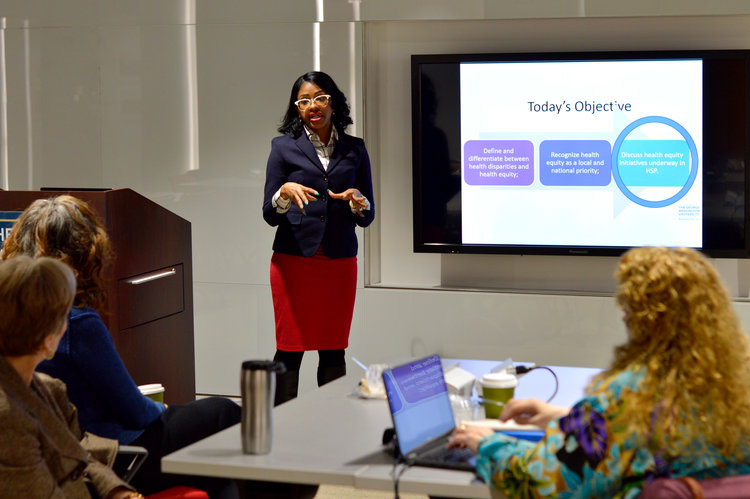
Dr. Maranda C. Ward is part of the school of Medicine and Health Sciences and she stated that their mission as a school is “excellence through diversity and inclusion” and “addressing the challenges of health equity.” Dr. Ward created a health equity course audit rubric which assessed health equity classes based on if they were implementing diverse cultural perspectives and found that many of the classes weren’t including diverse course work. Now as a department they are trying to figure out the best way to revise curriculum.
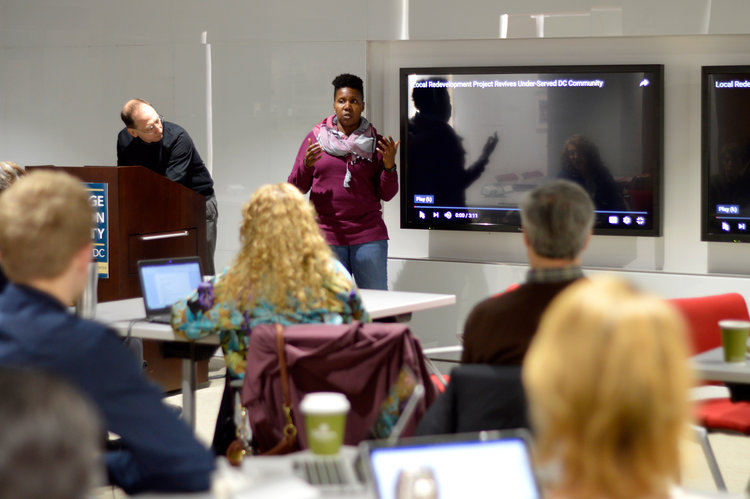
Dr. Imani Cheers teaches digital storytelling and revised her syllabus to include Black Lives Matter themes and issues. Students were assigned projects about social justice advocacy, researched areas outside of Foggy Bottom, and created a website of their videos, which you can find here: https://monumedia2018.wixsite.com/home
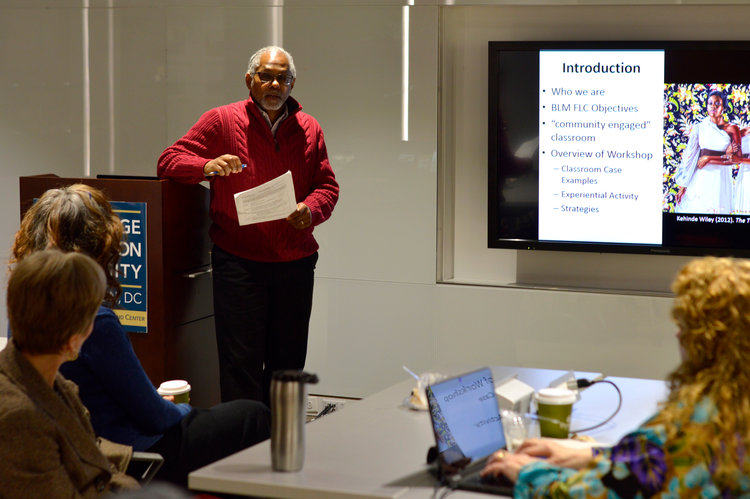
Dr. Susan LeLacheur and Dr. Howard Straker teach together in the School of Medicine and Health Sciences. In their classroom, they diversified case scenarios, used implicit bias tests and added material on African American historical trauma, and prenatal care. The session ended with faculty discussing ways to talk about race in their classes with conversations about Governor Northam and how to discuss the issue with students.
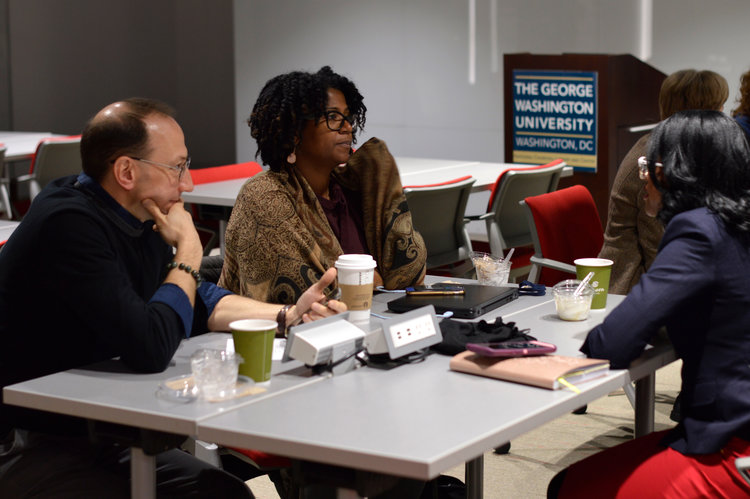
Thank you to the BLM FLC for a great scholarship!
If you would like to join this or any other FLC, information is here.
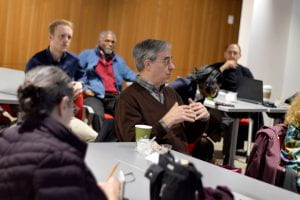 The February 7th Conversation on Community Engaged Scholarship focused on facilitating a deeper reflection.
The February 7th Conversation on Community Engaged Scholarship focused on facilitating a deeper reflection. 


